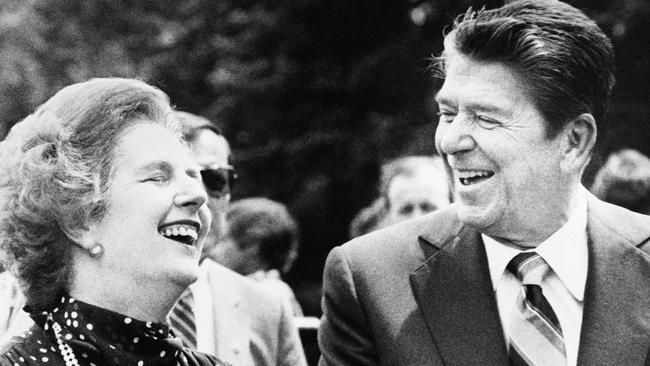Opinion: Evidence suggests company tax cuts unlikely to ‘trickle down’
EVIDENCE suggests the PM’s ‘trickle-down’ company tax cuts pledge won’t prove true. In Canada it has been “one of greatest public policy blunders of recent times”.
Analysis
Don't miss out on the headlines from Analysis. Followed categories will be added to My News.
THE theory of “trickle-down economics” would have us believe that economic reform such as tax cuts that tend to benefit the wealthier, investing, strata of society end up flowing down and bestowing their bounty on the rest of us.
The phrase is often associated with the Reagan era of supply side economic theory but actually has its origins in the depths of the Great Depression.
LABOR: Shorten defends backflip on company tax cuts
American humorist Will Rogers, musing in 1932 about the failings of president Herbert Hoover, wrote that: “They (Republicans) didn’t start thinking of the old common fellow till just as
they started out on the election tour. The money was all appropriated for the top in the hopes that it would trickle down to the needy.
Mr. Hoover was an engineer. He knew that water trickles down. Put it uphill and let it go and it will reach the driest little spot. But he didn’t know that money trickled up. But it will at least have passed through the poor fellows’ hands.”

Which brings us to the Turnbull Government’s promised $50 billion worth of company tax cuts, the centrepiece of its “jobs and growth” slogan.
The argument for the tax cuts, which will be phased in over 10 years, is that they will feed back into the economy in the form of increased investment and employment, even though Treasury’s own (optimistic) modelling puts the long-term economic gain at an upper end of just 1 per cent of GDP.
Critics contend the economic bang for buck just isn’t there and companies will just use the cuts to lift margins, with much of the gains flowing through to foreign shareholders in Australian companies.
As an International Monetary Fund report on income inequality last year concluded: “Specifically, if the income share of the top 20 per cent increases, then GDP growth actually declined over the medium term, suggesting that the benefits do not trickle down.”
This assertion is backed up by the experience of OECD nations which have in recent decades embarked on sustained programs of lowering corporate taxes.
In Canada, for example, two separate reports (2011 and 2015) from the Canadian Centre for Policy Alternatives conclude that three decades of tax cuts have done little to stimulate either jobs or investment.

The first report says that “since the first of several rounds of business tax reforms and reductions was implemented in 1988, business investment has declined by 1 full percentage point of GDP – even though after-tax business cash flow has increased (in part as a direct result of the tax reforms) by 3 to 4 percentage points of GDP”.
It continues: “The proportion of after-tax cash flow which Canadian firms reinvest in fixed non-residential capital has declined from near 100 per cent before the tax reforms, to less than
70 per cent today.”
The 2015 analysis concludes tax cuts have – particularly in Canada’s larger firms – resulted in cash hoarding and that “corporate income tax cuts will go down as one of the great Canadian public policy blunders of recent times.”
“Far from spawning higher levels of business investment and GDP growth, the government fixation with corporate income tax reform has indirectly fostered slower growth.”
In the US, a 2014 paper from the National Bureau of Economic Research analyses the impact of more than 270 corporate tax changes going back as far as 1969 and concludes that “while tax increases are uniformly harmful, tax cuts have, in general, no significant effect on either employment or income”.
Then there is the Budget impact.
And here the Australia Institute says modelling from both Treasury and independent economist
Chris Murphy “concludes that personal taxes will need to rise or government spending will need to be cut to fill the hole left by the corporate tax cuts.”
“Neither modelling exercise finds that additional revenue associated with increased ‘jobs and growth’ will even touch the sides of the Budget problems the corporate tax cuts will cause.”
Think of it not so much trickle down, as hole in the bucket economics.
Originally published as Opinion: Evidence suggests company tax cuts unlikely to ‘trickle down’


